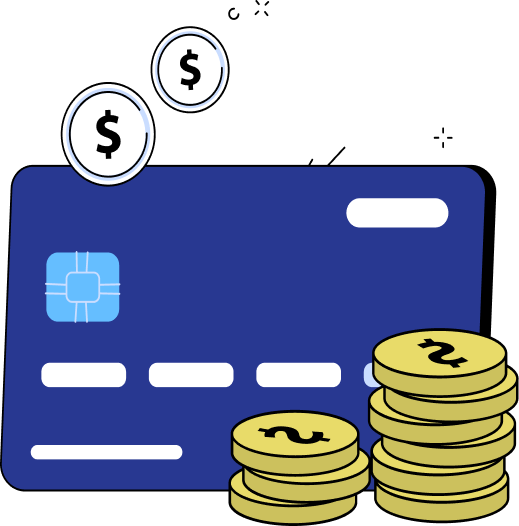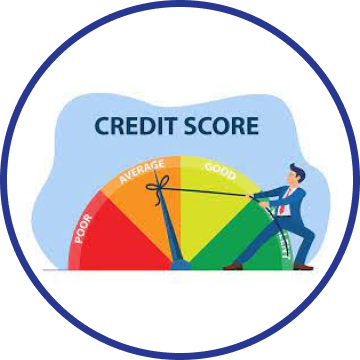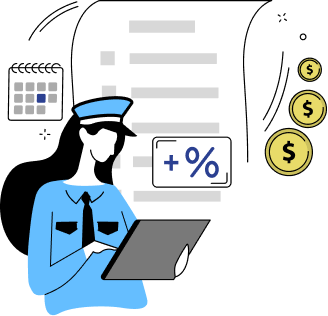

Prepare to spend wisely this holiday season!
Set a budget, shop with a list, make it a potluck, and bundle online orders are a few of the many tips offered in Yahoo! Finance’s recent article on “50 Tips for Saving Money During the Holidays.”

Test your knowledge with Equifax’s 3-minute Quiz.

According to AnnualCreditReport.com:
During the COVID-19 pandemic, accessing your credit is important. That’s why Equifax, Experian and TransUnion are continuing to offer free weekly online credit reports.
Learn more and find out how to access your credit reports weekly by clicking here: CreditReport.com.

Did you know that credit scores didn’t exist until the 1950s?
According to Credit.com: Before credit scores existed, you’d have to sit down and talk with a banker before getting a loan. The process was subjective. If the banker didn’t like you or thought you were untrustworthy, you wouldn’t get approved. In the 1950s, two statisticians named Bill Fair and Earl Isaac founded FICO, but it took until the 1970s for the FICO score to become an important part of lending.


Take advantage of the Credit Union’s FREE AND CONFIDENTIAL Credit Counseling services led by Certified Credit Union Financial Counselor Gwendolyn Hawkins, who has been assisting Law Enforcement Officers and their families with their credit matters for over 25 years.
Your credit score is one of the most important measures of your financial health. It tells lenders at a glance how responsibly you use credit. The better your score, the easier you will find it to be approved for new loans or new lines of credit. A higher credit score can also open the door to the lowest available interest rates when you borrow.
Eight quick-hit strategies designed to boost your credit score include the following:

The older your credit history, the higher your score. Whenever possible, maintain your old credit cards even If you don’t need them, because a longstanding card can go a long way toward protecting your credit.

A credit score is a three-digit number that is calculated from information on a credit report and generally ranges between 300 and 850. A good credit score is 670 to 739 on the FICO® Score range, while a credit score of 661 to 780 is good on the VantageScore® range.
Not all credit scores are FICO Scores. For over 25 years, FICO Scores have been the industry standard for determining a person’s credit risk. Today, more than 90% of top lenders use FICO Scores to make faster, fairer, and more accurate lending decisions. Other credit scores can be very different from FICO Scores—sometimes by as much as 100 points!
What’s in a name? When it comes to FICO Scores versus other credit scores, the answer is “quite a lot.”
FICO Scores are used by 90% of top lenders to make decisions about credit approvals, terms, and interest rates. Chances are when you apply for a mortgage, an auto loan, credit card, or a new line of credit, the bank or lender is looking at your FICO Score.
The reason? Lenders know what they are getting when they review a FICO Score. FICO Scores are trusted to be a fair and reliable measure of whether a person will pay back their loan on time. By consistently using FICO Scores, lenders take on less risk, and you get faster and fairer access to the credit you need and can manage.
FICO Scores use unique algorithms to calculate your credit risk based on the information contained in your credit reports. While many other companies design their credit scores to look like a FICO Score, the mathematical formulas they use can vary greatly.
Unfortunately, the methods used by these other companies can lead to credit scores that are very different from your FICO Score. And even just a few points difference can have significant consequences on your terms and rates—potentially costing you hundreds or even thousands of dollars. Learn how FICO Scores are calculated.
If you see an error or something you don’t recognize on your credit report, you can dispute it with either the lender or the credit bureaus. (There are three major credit bureaus that track your credit history: Equifax, Experian and TransUnion.)
Errors can come in a variety of forms. You may not have been credited for a payment you made, or you may have been charged for a purchase you didn’t make. A debt might be listed more than once, or your balance might be wrong.
Identity issues can occur because of problems like sharing a similar name or Social Security number with someone else. Or they might be the result of fraud. It’s useful to check your credit report once a year to look for issues, such as an incorrect address listed.
If you find an error on your credit report, you can contact the credit bureaus online or by mail. More information is available from the Federal Trade Commission and the Consumer Financial Protection Bureau.


For games for kids of all ages, visit our Kids’ Corner and start instilling good financial habits early on!

STOP!
Before you purchase that new car, check the Credit Union website to see if we can beat that rate!

STOP!
Before you purchase that new car, check the Credit Union website to see if we can beat that rate!

Patrolmen’s Dispatch. © 2022 ALL RIGHTS RESERVED.
We’d love to add you to our mailing list.